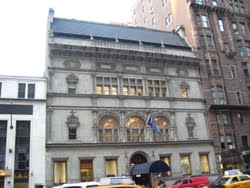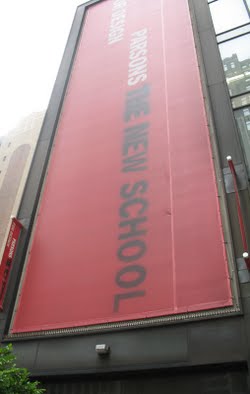Students Rights
 Clearly the IP covered by such policies will range from copyright in a student's course work, through design right, to in some cases to patents arising from academic research. It remains unclear how much students understood about these rights when they were asked to sign them away. These policies are understandable from the point of view of the universities which are increasingly keen to exploit academic research and innovation as an important revenue stream, but is it really fair that some students are being denied the right to exploit the fruits of their own creativity, especially when they are paying for their tuition?
Clearly the IP covered by such policies will range from copyright in a student's course work, through design right, to in some cases to patents arising from academic research. It remains unclear how much students understood about these rights when they were asked to sign them away. These policies are understandable from the point of view of the universities which are increasingly keen to exploit academic research and innovation as an important revenue stream, but is it really fair that some students are being denied the right to exploit the fruits of their own creativity, especially when they are paying for their tuition?
 The THE article quoted Charles Oppenheim, a visiting professor at the University of Nottingham, as saying these IP-grabbing policies in universities are a result of "ignorance rather than anything else", and he pointed to the JISC Legal report from 2007 which had warned that such contracts could well be found to be unfair if they were ever challenged in court. Mandy Haberman, a director of the IP Awareness Network, felt there was a huge amount of confusion about IP within the higher education community.
The THE article quoted Charles Oppenheim, a visiting professor at the University of Nottingham, as saying these IP-grabbing policies in universities are a result of "ignorance rather than anything else", and he pointed to the JISC Legal report from 2007 which had warned that such contracts could well be found to be unfair if they were ever challenged in court. Mandy Haberman, a director of the IP Awareness Network, felt there was a huge amount of confusion about IP within the higher education community.
Some of the reasons quoted by the universities do tend to support this suggestion that ignorance and confusion lie behind these policies. The Royal College of Art claimed that it held the IP rights until graduation in order to protect students' work from infringement. On the other hand, the London Metropolitan University wanted to have the rights so that it would not be liable for infringing the students' work if copies had to be made available to second markers.
You might also like











 The Art Students League of New York is an art school located on West 57th Street in New York City. The League has historically been known for its broad appeal to both amateurs and professional artists, and has maintained for over 130 years a tradition of offering reasonably priced classes on a flexible schedule to accommodate students from all...
The Art Students League of New York is an art school located on West 57th Street in New York City. The League has historically been known for its broad appeal to both amateurs and professional artists, and has maintained for over 130 years a tradition of offering reasonably priced classes on a flexible schedule to accommodate students from all...
 Parsons The New School For Design (known colloquially as Parsons or Parsons School of Design) is a private art and design college of The New School university in New York City. With more than 25 undergraduate and graduate programs, Parsons is widely recognized as one of the most prestigious art and design universities in the world.
Parsons The New School For Design (known colloquially as Parsons or Parsons School of Design) is a private art and design college of The New School university in New York City. With more than 25 undergraduate and graduate programs, Parsons is widely recognized as one of the most prestigious art and design universities in the world.